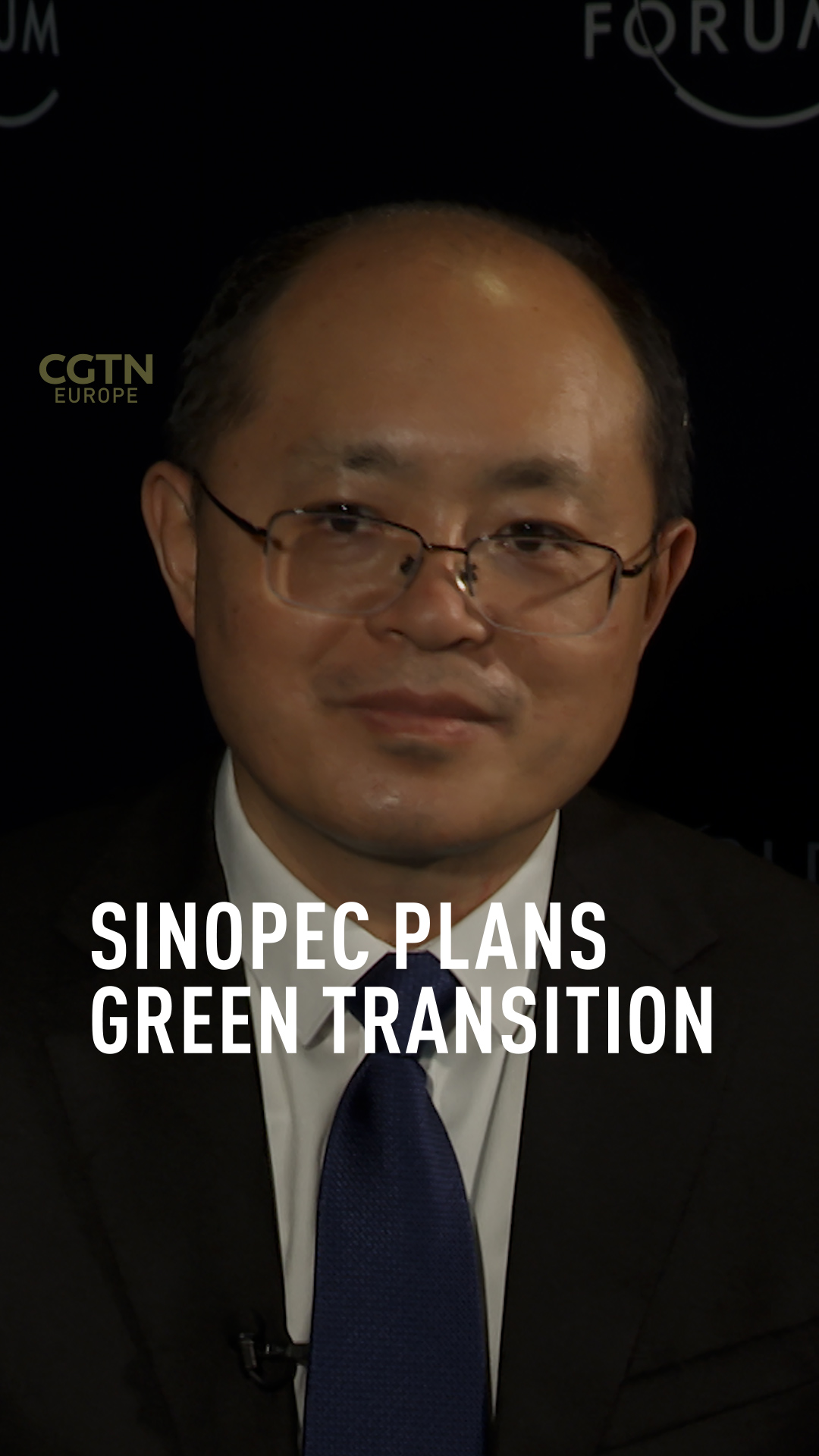
Sinopec is one of the world's largest oil refining, gas and petrochemical companies./ CFP
Sinopec is one of the world's largest oil refining, gas and petrochemical companies./ CFP
The director of China's largest oil and petrochemical products supplier has warned the only way the industry will properly develop is to fully embrace low-carbon technology.
Zhao Dong, on the board at Sinopec Corp since 2017, was speaking exclusively to CGTN at the World Economic Forum in Davos, Switzerland with a focus on major themes of carbon peaking, carbon neutrality, and green development.
With 85 percent of the world's primary energy consumption being fueled by fossil energy, Zhao was asked how traditional energy companies can promote carbon emission reduction goals while taking into account consumer demand.
READ MORE
Meet Italy's first antimafia witness turned MP
France's controversial pension reform
The Secret Betrayal: China's WWII sailors
"The transition to green energy and low-carbon is the only way for the petroleum and petrochemical industry to achieve high-quality development," Zhao said. "The company will coordinate the dual tasks of development and transformation.
"Firstly, we will vigorously promote the low-carbon transformation of traditional businesses, improve the supply capacity of clean energy, accelerate the intensive and green development of refining and chemical business, accelerate the pace of oil conversion and reduce the carbon footprint of the product life cycle.
00:40

"The second is to continuously enhance the supply capacity of green energy. We will actively develop hydrogen energy supply, clean heat supply, clean power supply, biofuel supply and the integration of new energy business and green development of existing business.
"The third is to accelerate the improvement of energy utilization efficiency. The fourth is to further promote carbon emission reduction and utilization and the fifth is to improve the level of carbon asset management."
Examples of this business transition towards lower carbon use will include strengthening methane emission management, actively developing forestry and grassland carbon sink projects and exploring the development of green finance.

The first hydrogen refueling station in Yunnan was opened last November./ CFP
The first hydrogen refueling station in Yunnan was opened last November./ CFP
Beijing-based Sinopec has an incredible array of business activities, including exploration, refining, working with chemical fibers and transporting crude oil. It was also announced last year they would embark on large-scale production of bio-jet fuel made from waste vegetable oil for the Chinese aviation industry.
The prospect of such a huge and diversfied company like Sinopec reducing carbon emissions is likely to be a huge challenge. Zhao outlined what measures might be put in place.
"While promoting carbon emission reduction work, consumer demand must also be taken into account," he added. "Green transformation is a process, not something that happens overnight. While developing new energy sources, we will also continue to make full use of traditional energy, such as coal, petroleum, and natural gas, which will be acting as ballast stones.
"And this will help the country form a safe, efficient, stable, and reliable energy system. This will help ensure energy supply, and keep the energy transformation at the right pace, and put the rice bowl of energy firmly in our own hands."

Sinopec Anqing Petrochemical Refining Department in full flow./ CFP
Sinopec Anqing Petrochemical Refining Department in full flow./ CFP
Video editor: Tom Triebel